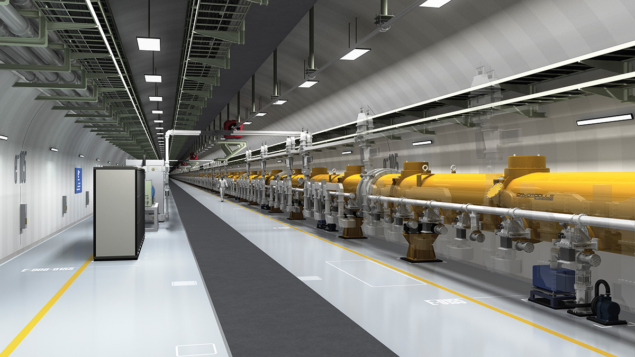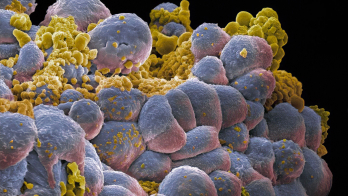
An advisory panel to the Japanese Ministry of Education, Culture, Sports, Science and Technology (MEXT) has called on proponents of the International Linear Collider (ILC) to re-evaluate their plans. In particular, noting the global situation and the progress in other future-collider proposals, the expert panel recommends that the issue of Japan hosting the ILC should be temporarily shelved in forthcoming ILC activities.
The Japanese high-energy physics community proposed Japan to host the ILC shortly after the discovery of the Higgs boson in 2012. Since then, MEXT and bodies including the Science Council of Japan (SCJ) have been examining all aspects of the estimated $7 billion project, which would collide electrons and positrons to study the Higgs boson in detail. In 2018 the International Committee for Future Accelerators (ICFA) backed a 20 km-long ILC operating at a centre-of-mass energy of 250 GeV – half the energy set out in the 2013 technical design report. But the following year MEXT, with input from the SCJ, announced that it had “not yet reached declaration” for hosting the ILC and that further discussion and greater international commitment were necessary.
Planning and progress
In June 2021, a 50 page-long report published by the ILC International Development Team (IDT), which was established in 2020, set out the organisational framework, implementation model, work plan and required resources for an ILC “pre-lab”. At the same time, KEK and the Japan Association of High Energy Physicists submitted a report to MEXT summarising progress on ILC activities over the past three years. Having evaluated this progress, the ILC advisory panel to MEXT released its findings on 14 February.
While recognising the academic significance of particle physics, the importance of a Higgs factory and the value of international collaborative research, the panel concluded that there is no progress in the international cost sharing for the ILC and that it is premature to proceed with an ILC pre-lab based on the premise that the Japanese government will express its interest in hosting the facility. It recommended that ILC proponents reflect upon the increasing strain in the financial situation of the related countries and reevaluate the plan in a global manner, in particular taking into account the progress in studies such as the Future Circular Collider (FCC). The question of hosting the ILC in Japan should be “decoupled”, recommended the report, and development work in key technological areas be carried out by further strengthening the international collaboration among institutes and laboratories. The panel also urged the research community to continue efforts to expand the broad support from various stakeholders in Japan and abroad by building up trust and mutual understanding.
Responding to the advisory panel’s findings on 22 March, KEK stated that it will re-examine the path for realising the ILC as a Higgs factory, taking into account the progress in various fronts including the FCC feasibility study. Also, in collaboration with the ILC-IDT, KEK will propose a framework to ICFA to address some of the pressing accelerator R&D issues for the ILC pre-lab. “KEK and the Japanese ILC community is committed to further advance important technological and engineering development in the accelerator area,” stated KEK, also announcing a new centrally managed organisation to strengthen ILC communications to the public, academia and industry.
Writing in ILC Newsline on 22 March, ILC-Japan chair Shoji Asai of the University of Tokyo sought to clarify the advisory panel’s statements, pointing out the “rather ambiguous” Japanese language: “It is easy to react by saying ‘ILC is dead’ or ‘Japan is not interested’. However, this is not a project that can be talked about in such a simple manner.” Regarding the panel’s statement about the FCC: “Some interpret this line as the recommendation to choose between the ILC and the FCC. It is NOT. There is a clear understanding of the timing difference between the two projects.”
On 11 April, ICFA published a statement reaffirming its position that the concept for the ILC is technically robust and has reached a level of maturity “which supports its moving forward with the engineering design study toward its timely realisation”. ICFA commits to continuing efforts within the IDT over the next year to coordinate the global research community’s activities, in particular to further strengthen international collaboration among institutes and laboratories to advance international collaboration toward important R&D activities, and will continue to encourage intergovernmental discussion between Japan and potential partner nations on the ILC.
“Since Japan has never hosted a large international research facility in the past, the cautious attitude of the Japanese government is in some way understandable,” says Tatsuya Nakada, head of the ILC-IDT. “Linear colliders should remain as a viable option for the future Higgs factory and beyond. In this context, ICFA support for the Japanese community proposing the ILC as a global project hosted in Japan is very important.”








